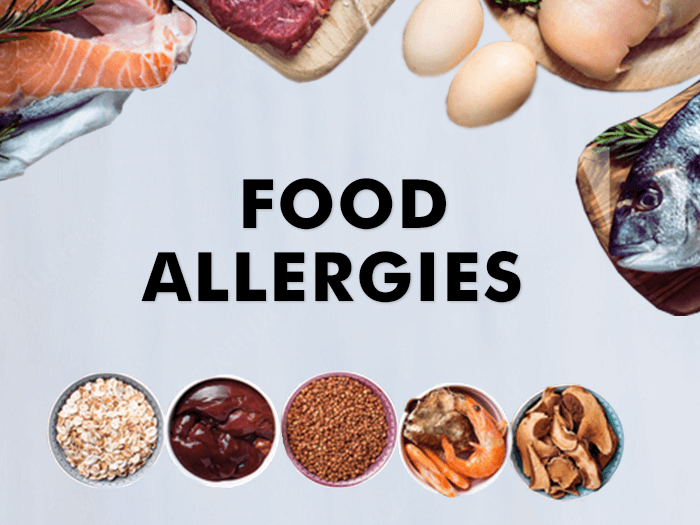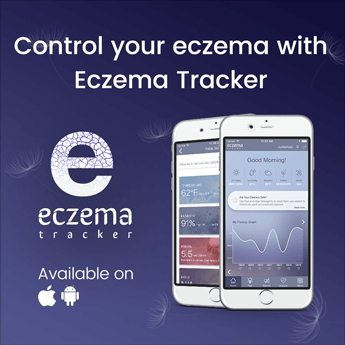What is a Food Allergy?
Food Allergy is a life threatening medical condition. It occurs when your immune system quickly reacts to a certain kind of food. You can develop an allergy at any time be it a case that you have already had it for years before. Food allergy occurs in around 1 in 20 children and in about 2 in 100 adults. Even a tiny chunk of a food can do its work and develop an allergic reaction. A substance that causes an allergic reaction is termed as an allergen.
In some people, food allergy can cause severe symptoms or sometimes even results in hazardous condition. The symptoms of food allergies are most common in children but it can also develop at any age. It is generally noted that these allergic reactions are often mild, but they can be very serious at certain times.
More than 50 million Americans have an allergy of some kind. You probably know one of those people or are one yourself. Food allergies are estimated to affect 4% – 6% of children and 4% of adults, according to the Centers for Disease Control and Prevention.
Types of Food Allergies

Food Allergies are categorized into two main types as per the symptoms and time of occurrence.
1. IgE-mediated food allergy
The type of allergy most commonly seen in infants and children are milk, tree, peanuts, eggs, soy, wheat and nuts. It can involve the lungs, skin, mouth, heart, eyes, brain and gut area. It is triggered by the immune system producing an antibody called IgE. Symptoms include:
- Skin rash
- Hives
- Swelling
- Shortness of breath
- Stomach pain
- Vomiting
- Wheezing
2. Non-IgE-mediated food allergy
These allergic reactions aren’t caused by immunoglobulin E, but by other cells in the immune system. Other body parts of the body’s immune system basically react to a certain food to cause an allergic reaction. Any individual can have both IgE mediated and non-IgE mediated food allergies. The diagnosis is somewhat difficult as the symptoms may take several hours to develop.
What are The Symptoms of Food Allergies?
The different parts of the body can be affected at the same time. Some common food allergies symptoms
include:
- Vomiting
- Stomach cramps
- Wheezing
- Shortness of breath
- A repetitive cough
- Shock
- Circulatory collapse
- Tight, hoarse throat
- Swelling of the tongue
- Weak pulse
- Dizziness
What are the Causes of Food Allergies?
The main cause of food allergy is still unknown. Both heredity and environmental factors may play an important role in the development of food allergy. These allergens in the food are basically those that carry out an allergic reaction.
If you have a sibling or parent with any allergenic condition like eczema, food allergy or asthma then you may have a higher risk of developing food allergies as well. Also, children who suffer from eczema in their childhood are more prone to food allergy as well.
The mechanism of food allergy involves the immune system and genetic makeup. There are certain foods that trigger food allergies in children and adults.
Foods responsible for an allergic reaction in children are:
- eggs
- milk
- soya
- wheat
- peanuts
Foods responsible for an allergic reaction in adults are:
- peanuts
- tree nuts
- fish
- shellfish
However, it’s known that any type of food may cause food allergy. These allergic reactions have been reported in association with:
- celery
- gluten
- mustard
- sesame seeds
- fruit and vegetables
- pine nuts
- meat
Can Allergies affect pregnant women?
Allergies can have a little effect on your pregnancy. 1/3rd of women with allergies experience relief from their symptoms when they are pregnant. Some women may experience allergies during pregnancy for the very first time while they are pregnant. However, most of the time it affects someone who had the same allergy during childhood, or who has another allergy. That’s not always the case, but it’s pretty common. Symptoms of pregnancy can mask allergies. As you may experience rashes, bloating, or food reactions, but it could just be a normal pregnancy problem, or it could be an allergy.
Why there is a rise in Food Allergy in the Past Few Years?
There is no clear information as to why we are seeing a rise in food allergies so rapidly in recent years. A proper research must be required to find an actual cause and few of them are already underway. The proposed explanation that has not been proven yet includes:
- Delayed introduction of allergenic foods like nuts, eggs, and peanuts.
- Methods of food processing, like roasted versus boiled peanuts.
- Development of allergy to food by skin exposure
These areas require additional research studies, several of which are underway.
Treatments for Food Allergies
Food allergies can be treated by natural remedies and medications as well relieve the symptoms in case of an allergic encounter.
First, let’s start with the medications:
- Antihistamines
- Adrenaline
1. Antihistamines
These are used to treat mild to moderate allergic reactions caused by any food. It blocks the effect of histamine responsible for the allergy. Antihistamines work differently, so make it a point to consult your doctor before having any dose. Few aren’t suitable for the children so have a careful observation.
2. Adrenaline
These are used to treat severe allergic reactions. This can be provided as an auto-injector in case of emergency. The medication works by narrowing the blood vessels so that it can counteract the low blood pressure and open up the airways to ease up the process of breathing.
3. Avoidance of diet
Dieticians can always be of great help to teach you the interpretation of food labels to discover ingredients that are made from allergic foods for you. Compliance with such avoidance diets can help you relieve the symptoms and worsen the effect.
Not only the medications but natural treatments for food allergies can do wonders. If you are the one who wants to follow home remedies for food allergies then remember the below listed treatment options to treat the condition.
Best Home Remedies for Food Allergies

1. Ginger For Allergies:
Due to its anti-bacterial, anti-inflammatory and anti-oxidant properties ginger stands out to be an excellent home remedy to treat various problems like diarrhea, indigestion, nausea, dizziness, cough, wheezing, and vomiting. Consume 3-4 cups of ginger tea daily to get rid of the allergy.
2. Vitamin C
Include more citrus fruits and vegetables rich in vitamin C like broccoli, kiwi, orange, tomatoes, strawberries, grapefruit and lemons in your diet as this helps to restrain the toxins build up in the body.
3. Stinging nettle
It is one of the best natural remedies to treat food allergies. It helps to relieve the symptoms like a runny nose, nausea, skin rashes, stomach pain, etc. Drink nettle tea every day.
4. Green Tea
Not only used for weight loss but is helpful to get rid of allergies. It is considered as the best antioxidant. Drink 2-3 cups of green tea every day for 1 to 2 weeks.
5. Castor Oil
It eases the gastrointestinal discomforts related to food allergy. Mix 1/2 tsp of castor oil in a glass of water every morning on an empty stomach.
6. Coconut Milk
It acts as one of the perfect alternative for cow’s milk. Found in mature coconuts. It’s free from lactose so acts as a best remedy.
Related Posts:
- Delayed Food Allergy & Symptoms, Diagnosis and Treatment
- Probiotics study on Food Allergies
- Is There any Connection Between Food Allergies and Eczema?
- Top 8 Lunchbox Foods To Avoid If You Have Eczema
- Do You Know : U.S Children Are More Prone To Allergy Risks
Author Bio:
Shaliza Gill is a Content Writer, Manager, and Developer, producing content, including infographics, websites, and blogs. She has completed her Master of Science in 2013 and has been managing content at Eczema Living since 2015. She coordinates teams of writers, editors, and project managers. Her goal is to produce content that is thoroughly researched, clearly explained, and as helpful as possible to the readers.





